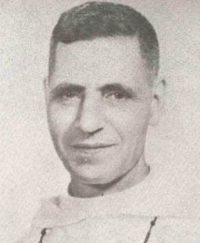In big headlines, the press reported the capture of Col. Hugh Straughn who was allegedly the guerrilla commander in Central Luzon and to whom was partly attributed the rampant lawlessness in Zambales and Tayabas. The captive read on radio some very humiliating statements about his actuations and miserable life in the mountains, appealing to his followers to turn to the fold of Japanese magnanimity. According to the news, seventy terrorists fell into the hands of the military police among whom were those who made an attempt on the life of Commissioner Laurel.
However, both the guerrillas and the gangsters—the police classifies them under the same category—are roaming about unarrested in Laguna, Tayabas and Rizal. In Manila, the police has cordoned a block of houses in Raon St. and arrested several hundreds of persons. A number of them, with USAFFE cards, have fallen into the hands of the police.
It isn’t seldom that streetcars are stopped, the passengers ordered to get down and searched. In other cases, the police post themselves in strategic places, accosting and searching pedestrians and passers-by.
Commuters from the Visayas report that the situation there is getting worse. The Japanese dominate only six or seven towns in Panay. Hence, the guerrillas encamped in the rest of the province remain unmolested. Hardly was there a town which was not destroyed, and a church or a school which was not left standing.
The granting of Burmese independence is alluded to by pro-Japanese opinion makers as an indication of an early Philippine emancipation. But the more the pro-Japanese propaganda is intensified, the greater the distrust in Philippine Independence and the more active the guerrilla movements become.
The Filipinos have many speculations regarding Japan’s motives for wanting to grant them a speedy independence. They suspect that the whole business is not a matter of altruism but of expediency and self-interest. The hurried concession could be attributed to the imminent danger of an American attack on Japan in this part of the Pacific front much earlier than Japan had calculated. The Filipino suppose that one of the purposes of this concession is to make the Philippines declare war against the United States both by reason of her independence and because of the American bombings on Philippine soil. They know Japan enough to infer that Japan is intending to utilize American attacks on an independent nation as a propaganda against American imperialism.
